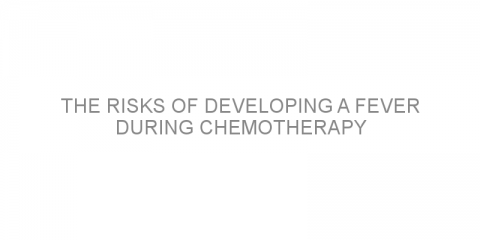In a nutshell The authors aimed to give specific breast cancer treatment guidelines determined by medical experts. Some background The St. Gallen International Breast Cancer Conference is held every two years. Leading experts in breast cancer research meet at this conference to determine the most up-to-date guidelines for treatment. The 2015...
Read MoreConfined or spread disease-Confined only to the breast Posts on Medivizor
Breast cancer sub-types and their response to treatment
In a nutshell The authors evaluated whether there was a difference in the treatment response rates between invasive lobular carcinoma and invasive ductal carcinoma. Some background Invasive lobular carcinoma (ILC) is characterized as cancer that begins in the milk-producing lobules that then spreads to surrounding breast tissue. Invasive...
Read MoreDoes trastuzumab increase the risk of infection?
In a nutshell The authors aimed to determine whether or not the breast cancer treatment trastuzumab (Herceptin) increased the risk of developing certain infections. Some background Human epidermal growth factor receptor positive (HER2+) breast cancers are dependent on the HER2 protein for growth. It is often targeted with a particular...
Read MoreCancer cell mutations and their impact on response to treatment
In a nutshell The authors aimed to determine the significance of cancer cells mutations (a permanent change in the genetic core of the cell) and their impact on a patient’s eligibility for certain therapy drugs. Some background Tumor suppressor genes (such as BRCA-1) protect cells from becoming cancerous through mechanisms that repair damage...
Read MoreBreast cancer sub-types and the extent of surgery required
In a nutshell The authors aimed to evaluate whether there was a difference between the rates of local recurrence (the cancer returns to or near the site of the original tumor) in invasive lobular carcinoma and invasive ductal carcinoma. Some background Invasive lobular carcinoma is characterized as cancer that begins in the milk-producing lobules...
Read MoreEarly breast cancer; is long term hormone therapy necessary?
In a nutshell The authors aimed to assess the effectiveness of prolonged hormone therapy to treat women with early breast cancer. Some background Tamoxifen (Nolvadex) is a type of hormone therapy used to treat breast cancer. It attaches to the estrogen receptors (surface structures that respond to estrogen hormone) present on some cancer cells...
Read MoreHormone receptors; association with breast cancer outcome
In a nutshell The authors aimed to evaluate the prognostic (disease outlook) effect of the presence of certain hormone receptors on cancer cells. Some background Breast cancer is classified into different subtypes depending on the presence or absence of certain receptors (proteins found on the surface of the cancer cells). Breast cancer...
Read MoreCancer sub-types; what are the characteristics?
In a nutshell The authors aimed to distinguish whether the characteristics of breast cancer could depend on the focality of the tumor. Some background Breast cancer can be characterized as 'unifocal', 'multifocal and 'multicentric'. This refers to the number of areas in which the cancer can be found (focality); unifocal...
Read MoreHormone therapy; enabling surgery in post-menopausal breast cancer patients
In a nutshell The authors aimed to determine the long-term effects of hormone therapy to treat post-menopausal women with advanced breast cancer. Some background Hormone therapy is a form of breast cancer treatment. It targets cancer cells that may be affected by hormones. It is often administered prior to surgery in patients who are unfit to...
Read MoreThe risks of developing a fever during chemotherapy
In a nutshell The authors aimed to determine the risk factors for patients developing a fever during chemotherapy for breast cancer. Some background Febrile neutropenia is the term that describes the development of a fever in a patient who has neutropenia; low levels of granulocytes (a type of white blood cell). This can often be caused by...
Read MoreDo levels of cell proliferation predict outcomes in breast cancer?
In a nutshell This paper studied whether the mitotic activity index (levels of mitotic activity) could be used to predict the outcomes in lymph node-negative invasive breast cancer patients (breast cancer that has spread to surrounding tissues but not the lymph nodes). Some background Mitotic activity index is a measurement of the number of...
Read MoreDiabetes with breast cancer: do diabetes drugs influence cancer outlook?
In a nutshell The authors aimed to determine the link between metformin and breast cancer treatment outlook in patients with diabetes. Some background Metformin is a drug used to treat type 2 diabetes (condition that increases blood sugar levels). It can also have effects on cancer as it can target tumor cells (the cells that form a tumor)...
Read More













